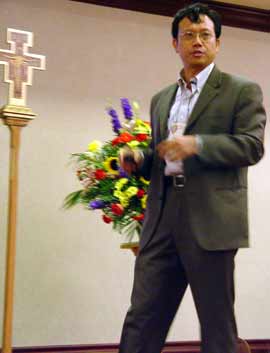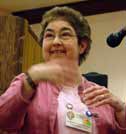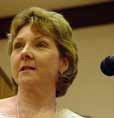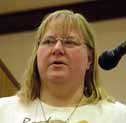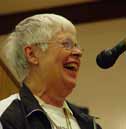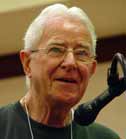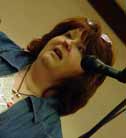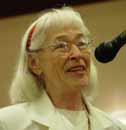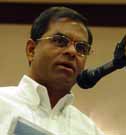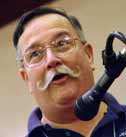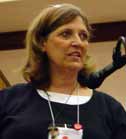|
QUINQUENNIAL CONGRESS XVII, PITTSBURGH, PA * U.S. SECULAR FRANCISCAN ORDER |
Use Power Analysis to Enter into Dialogue
|
BELOW: Some participants share insights
|
By BOB and MARY STRONACH, SFO PITTSBURGH, PA, July 7, 2007 -- A “ power analysis” is a good tool to use to enter into dialogue, Fr. Eric Law noted in his third and final keynote address of the Quinquennial Congress. “Observe the situation and determine who or what group is perceived to have more power (such as the ability to manipulate the environment or circumstance, or the ability to influence others),” he said. As a practical point, invite the side with less power to speak first, and the more powerful side to listen first. He referred to this as the Cycle of Gospel Living, using the story of Pentecost as an illustration. Pentecost wasn’t just about the miracle of the tongues, where the politically powerless disciples of Jesus were inspired by the Holy Spirit to speak out, he said. Pentecost is also about the miracle of the ear, where the more powerful Jews in Jerusalem “were invited by the Holy Spirit to be silent and listen.” The cycle of Gospel living is about the invitation of the Spirit to enter the Gospel and become powerless, to join Jesus on the cross, and listen to the powerless. It is about empowering the powerless to speak. Then to complete the cycle, those listening (with Jesus on the cross) are invited to give voice, rising with Christ in his resurrection. “The miracle of Pentecost will not happen unless the speaking of tongues of the powerless is combined with the hearing of the powerful.” Servant leadership, he noted, comes close to this model. He asked: “Who on earth will give up power, and not keep it?” “Franciscans,” a friar in the audience said, which sparked laughter, and sounds and nods of assent. Fr. Eric continued: “The cross is part of Christian life, but it’s not fun” if people are constantly on it, “if we don’t offer them resurrection.” That’s why people have become weary of workshops on racism and diversity. “They’ve been beaten down as oppressors and not offered resurrection.” In a group setting, that means “inviting others to share what it felt like to listen to us.” “Once you enter the cycle (of Gospel living), it’s easy. You talk and I listen. I talk and you listen.” The problem comes in finding a way to enter the cycle. He gave a simple example of a tall man and a short woman. In our society, the man could be perceived to have more power because he is male and he towers over the other person. “What should he do? Shut up, and invite” the woman to speak; and when she is done, she should invite him to speak. In addition to gender and physical stature, conditions that could affect the perception of power include such things as age, dress, race, position of authority. “What I’m asking you to do is, when you have power… share it…You need to listen.” “If you listen to the powerless first, and then listen to everyone else, you begin to get to the truth.” In summary, he recounted his tools for building inclusive community: 1. respectful communication. He called it a “theological foundation for leadership in a diverse, changing world.” ### |

